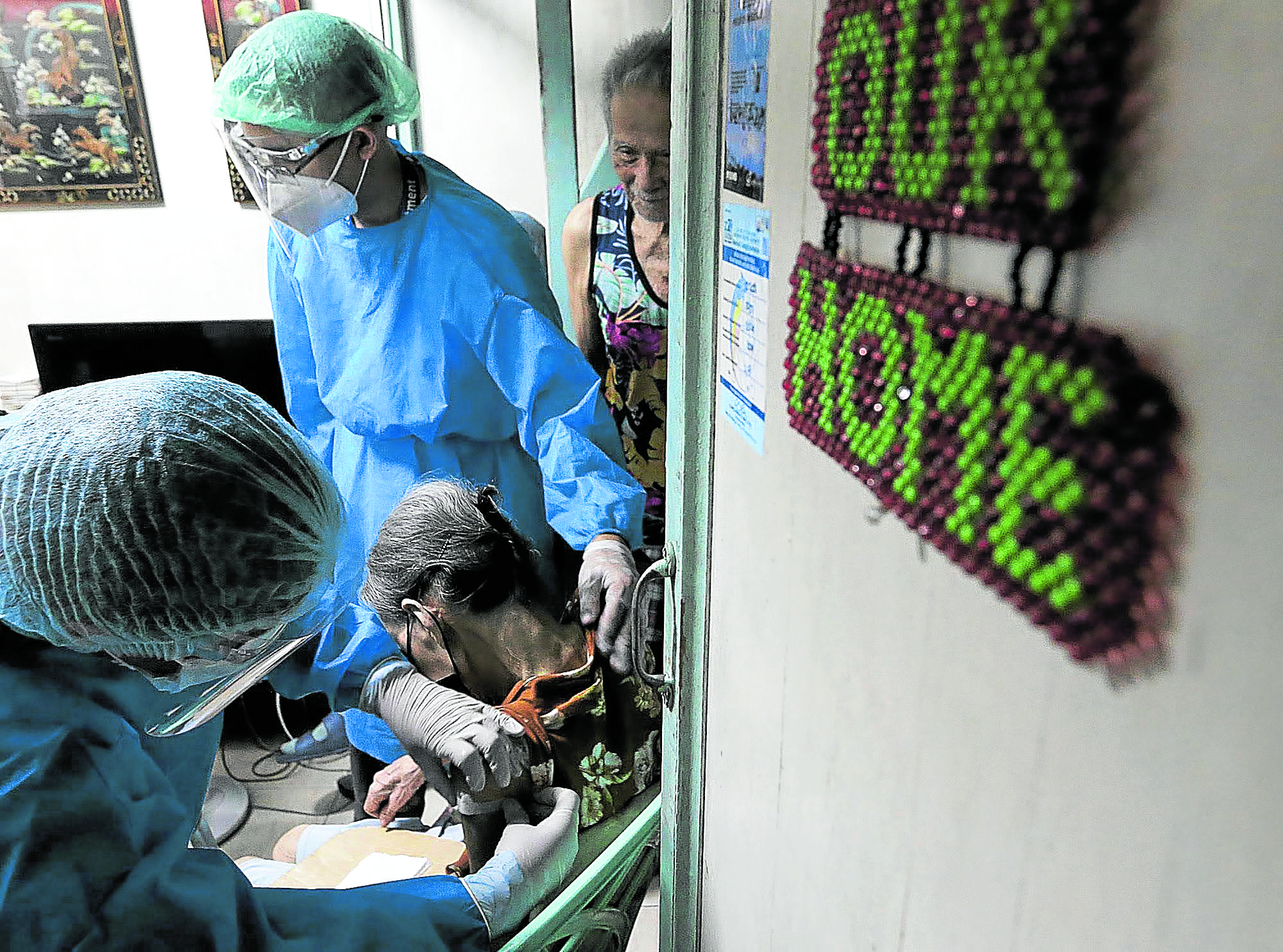
Resident Soledad Ablaza, 89, receives the 2nd dose of the Sinovac vaccine from health workers of the Manila Health Department during home vaccination for bedridden citizens of the local government of Manila in Barangay 221, Tondo. INQUIRER PHOTO / RICHARD A. REYES
MANILA, Philippines — With the government’s COVID-19 vaccination program now underway, the Commission on Human Rights (CHR) is urging that information about the program as well as the vaccines to be given reach marginalized groups in isolated areas and persons with disabilities (PWDs).
As the world marks the International Day of Action for Women’s Health, the CHR stressed how “vulnerable groups have been rendered more vulnerable” by the COVID-19 pandemic.
“Are those in the fringes assured access to information, prioritization? Are measures considering their vulnerabilities?” CHR Commissioner Karen Gomez Dumpit said Friday in a statement.
“Are the women and other marginalized groups involved in the planning and programming, and in decision-making? Are gender-specific concerns, such as maternal health, gender-based violence, and unpaid care work being considered in the vaccine roll-out?” she added.
“Vaccine information must be accessible for the deaf and other women with disability and those in geographically isolated and disadvantaged areas,” she added.
Dumpit also suggested sign language interpreters and translations of vaccine-related issuances and announcements be made available.
Further, Dumpit said transportation support for women with disabilities and rural and indigenous women must also be provided.
Aside from a health crisis, Dumpit said the pandemic must also be seen as a “human rights challenge.”
“Equality and non-discrimination must be mainstreamed in the Covid-19 vaccination program. Gender is an important aspect of the access and prioritization discourse. However, it is not the sole consideration,” Dumpit said.
“Apart from gender, a truly inclusive vaccination program must take into account ethnicity, age, ability, religion, and other contexts, and the possible vulnerabilities that people experience because of one or more of these factors,” she added.
RELATED STORIES
Taguig LGU offers home service vaccinations for bedridden residents
Home vaccination for seniors pushed; 11% got jabs so far